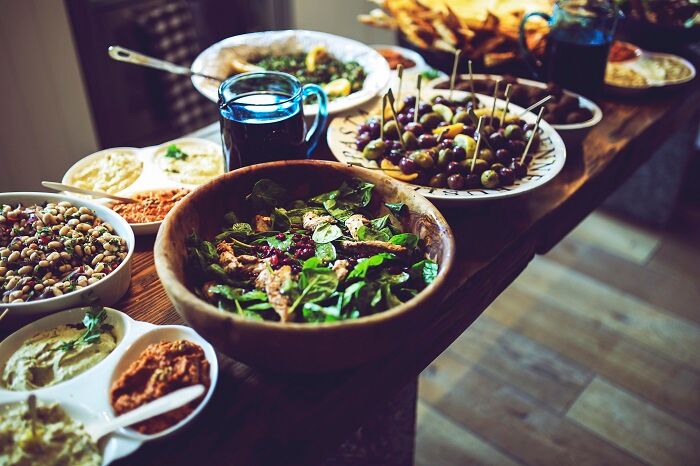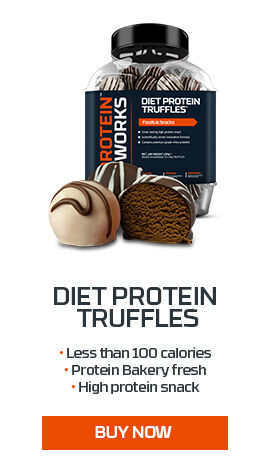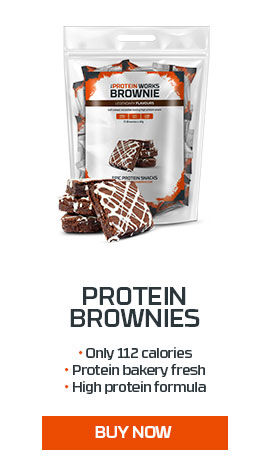Top 3 Ways To Combat Cravings
I need a chocolate bar! How many times have you heard someone in your office say this? You've probably even said it yourself. Whether your vice is crisps, biscuits, cakes or cookies we all experience cravings at some time. They most commonly attack mid-morning, mid-afternoon or either side of dinner like a stealthy ninja and you are powerless to stop them. So what causes these cravings and what can you do to control them?
The most important thing is to identify what triggers your cravings, what time of day they occur, whether they occur on certain days etc. Try keeping a food \ sleep \ stress diary. Over the course of a few days or weeks you should be able to spot common trends and take the necessary steps to combat them. Here's our top 3 picks to get you started!

Eat More... Or Less!
I'm not just referring to the amount of food you eat but also the frequency. Now before you protest that meal timing is of no consequence, consider this. Although a recent study[1] concluded that for the most part there was no significant benefit to be gained from manipulating meal timing for most people, there may well be some merit depending on the individual.
But here's how it could help you. If eating more or less times per day helps you feel fuller then you are far less likely to snack. Let's look at someone who eats a standard breakfast, lunch, dinner. It is possible that their food cravings are caused by low blood sugar levels (hence the craving for sugary snacks). By eating 6 times per day, you are effectively replacing your snack (or all out binge) with something much healthier and possibly pre-planned. I have taken on so many clients in the past that eat 6 times a day 'because it speeds up the metabolism' - BAD NEWS - this is just simply NOT the case.
Quite often when a client is eating 6 times a day they spend most of their time thinking about the next meal and become pre-occupied with food to the point where it becomes an unhealthy obsession. Moving to 3 or 4 larger meals leaves a lot of people feeling sufficiently full to take them right through to the next meal. Both approaches do of course assume that calorie intake is matched, whether it is spread between 3 or 6 (or however many you choose) meals.

Pump Up The Volume
Eating more calories than you need will lead to fat gain. So if you're dieting or experiencing cravings try eating more. I'm not suggesting an increase in calorie intake but the AMOUNT or 'volume' of food you're eating. For the same number of calories you get in a standard chocolate bar you can eat enough salad to completely fill your stomach FOUR TIMES over! So you can see that high volume, low calorie foods can not only be more filling but more nutritious as well.
The feelings of hunger are caused when our stomach releases a hormone called ghrelin. This signals to our brain that food is required. Ghrelin levels are at their highest before a meal and then subside after we've eaten. Manipulating individual hormones (or attempting to) is a pointless task, despite what you may have read. The human body is just too complex for this. However, research has shown ghrelin levels to be lower in those that were sufficiently rested compared to those who were sleep deprived. Basically this means that cravings will be more frequent and more intense if you are short of sleep.
Try looking at where you can make your use of time smarter and get to bed earlier \ sleep in longer (if your schedule allows). After all, you can't eat when you're asleep! When we eat a meal, ghrelin levels reduce and leptin levels rise. Leptin is the hormone responsible for signalling to your brain that you have eaten enough. Leptin is released by the fat cells as the fat stored in the cells increases (after a meal). This process is not immediate and so eating more slowly will help you to more easily recognise when you are comfortably full. To help with this, try chewing each mouthful of food for slightly longer or put your cutlery down between each mouthful to make you more conscious of what you are eating.

Swap The Snack
If you are one of those people that just feel they cannot be without a snack, making smarter choices is the way to go. For fewer calories than an average chocolate bar or a couple of biscuits you can have a piece of fruit and a protein shake. There is no need to worry about the sugar content of fruit; after all, the fruit will provide you with so many vitamins, minerals and fibre not found in the vending machine. By ingesting the fruit with a protein source and \ or fat source you will lower the insulin response which might otherwise cause you to feel peckish again a short time later. Just be careful what you choose for snacks, many 'healthy' snacks available are actually quite high in calories which are the most important factor in weight management.
Read about our smart swap recipes here!
Article by Bjorn Dawson
Our Top Cravings Combaters!
Home | Shop | Help




